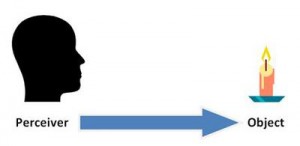
By Deepak Chopra MD, Menas Kafatos, PhD, Subhash Kak, PhD,
Rudolph E. Tanzi, PhD, and Neil Theise, MD
For at least two thousand years thinkers have tried to explain the human mind and disagreed heatedly, but a consensus has formed around one thing. When you try to figure out where the mind comes from, you find yourself in a strange domain filled with mirrors, illusions, and a shaky grasp on reality. The mind is harder to hunt down than the mythical unicorn, because the hunter and the hunted are the same. This frustrating obstacle has led to speculation that swings between two extremes – at one extreme consciousness is pure illusion created by brain chemistry. At the other extreme consciousness is a given that defies exploration, much as water is a given to a fish. We can’t jump out of our minds to land on a place where objective observations could be made, just as a fish cannot land on dry land as a way to peer under the sea. Both are physically impossible.
Must the riddle of the mind remain a riddle? In the first post we looked at the currently dominant field of mind research, neuroscience, that provides one explanation of consciousness, as a manifestation of the brain. (You may want to read Part 1 first to get the basics of what brain science is trying to achieve.) Our position is radically different from the vast majority of brain researchers, who attempt to unravel the intricacies of the mind by dissecting the intricacies of the human nervous system. We hold that mind doesn’t need the brain in order to exist. It precedes all living things by being fundamental to the universe. In other words, human beings inhabit a conscious universe. (more…)



